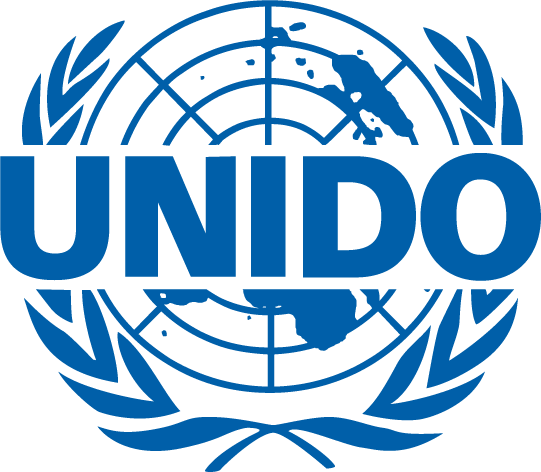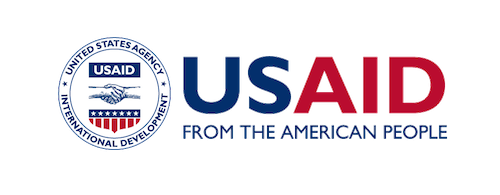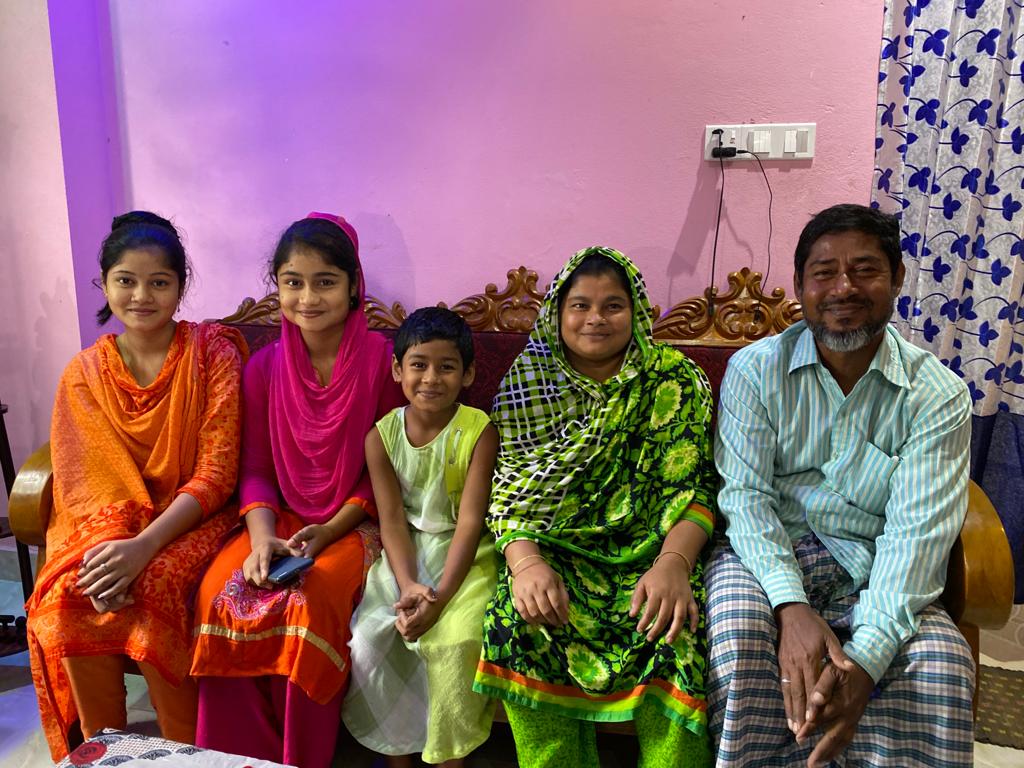
This year, mothers in Kathgora, Bangladesh, have a big reason to celebrate–they know that their children are healthier today than they were a year ago. That’s because their children’s blood lead levels (BLL) have been almost cut in half following a Pure Earth cleanup.
For Sultana Hossain, this means hope for her two youngest daughters: 14-year-old Arifa and nine-year-old Marufa. Their BLLs have dropped from 18 µg/dL to 10 µg/dL, and 24 µg/dL to 12 µg/dL respectively, and are continuing to fall. Sultana knows that her girls are now safer and have a chance to reach their full potential.
The trouble in their small village of 300 people began when two informal battery recycling operators rented land from Sultana’s husband to do their work. Mr. Hossain was aware that the men were going to break and recycle batteries, but he did not know that lead was toxic.
Neighbors who lived next to the bamboo grove, where the recyclers were smelting lead, soon began complaining of thick acrid smoke filling their homes at night, and black dust falling like rain, coating leaves, trees, and livestock.
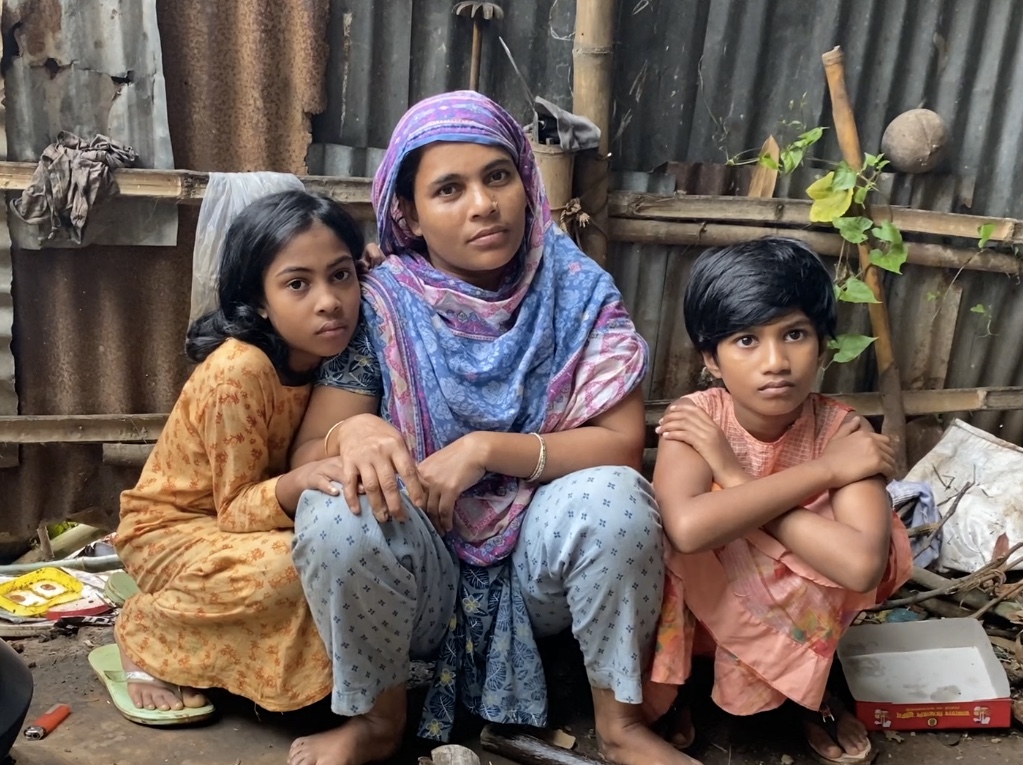
Batashi Begum, one of Sultana’s neighbors who lived next to the bamboo grove, reported black smoke filling her home every day from the lead smelting.
While Sultana and the other mothers in Kathgora worried about the black smoke and dust, they did not realize that the bamboo forest, where all their children played, was littered with toxic battery waste and contaminated with 100,000 ppm of lead–250 times the U.S. EPA limit of 400 ppm. Marufa, Sultana’s youngest daughter, had the highest BLL in the family, potentially because she played in the forest often with her friends. They would play hide and seek, or fill empty battery casings with dirt, tying them together with rope and dragging them around the forest as if they were leading a caravan on a great journey.
Of the 75 children tested in Kathgora, Pure Earth found that every child had elevated blood lead levels ranging from 8 µg/dL to 47 µg/dL, with the average at 21.3 µg/dL. Marufa’s BLL was 24 µg/dL before the cleanup.
Kathgora’s children were in grave danger, but as there is little awareness that lead is toxic, no one knew. A potent neurotoxin, lead can affect nearly every system in a young developing body, in particular the brain and nervous system, with devastating and sometimes permanent health consequences. Studies have shown that for each five microgram increase in blood lead, a person loses about 1.5 IQ points. That loss is permanent.
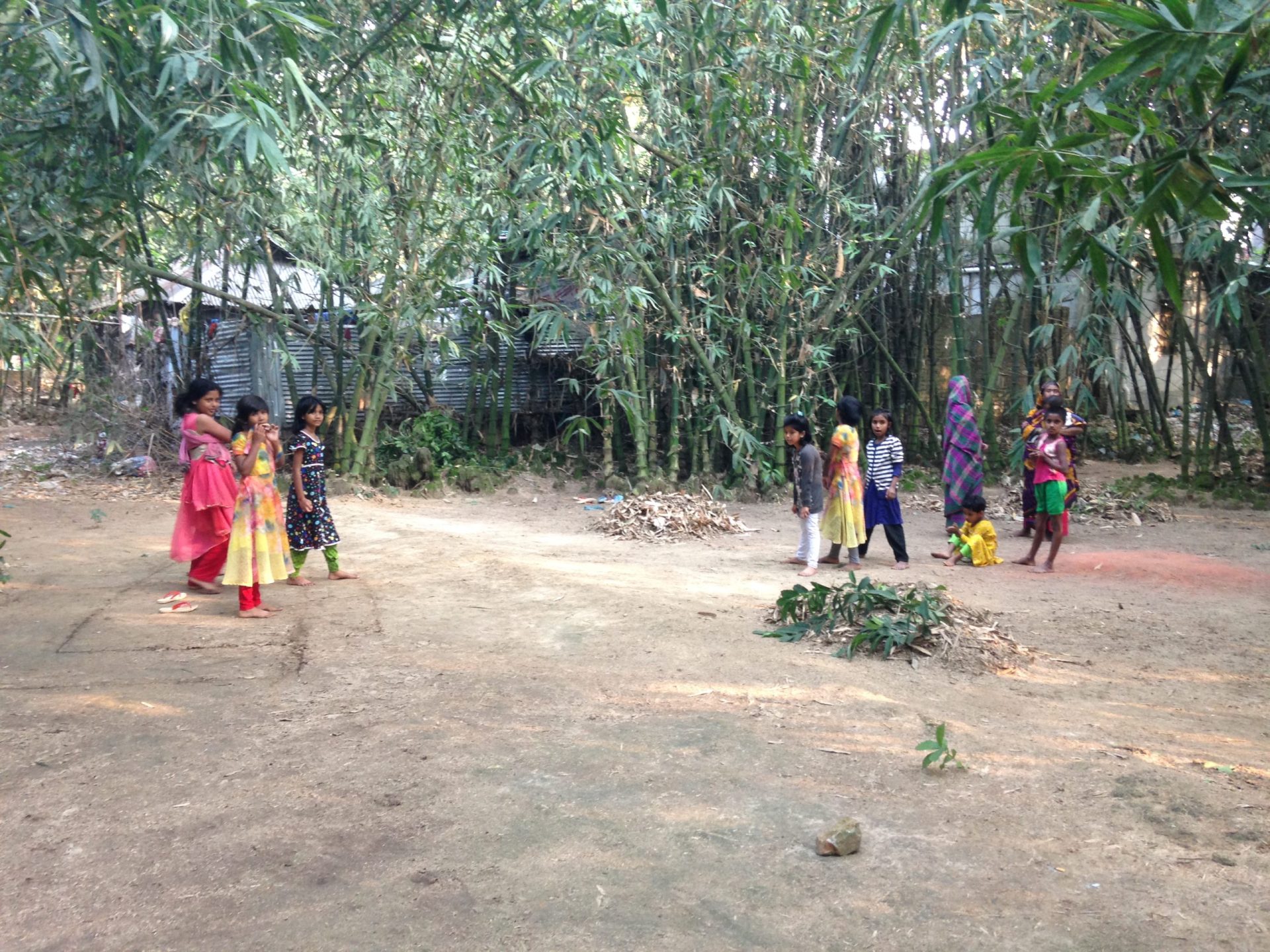
Children at play in the bamboo forest in Kathgora, Bangladesh.
It became apparent that something was very wrong when the villagers’ livestock started dying. One neighbor’s buffalo began acting strangely, roaming aimlessly and foaming at the mouth before suddenly dying, along with her two goats. Another woman’s cow died. When Sultana’s husband went to the recycling site, he saw a pregnant goat which had just aborted its fetus. Next, everyone realized the the normally productive mango and jackfruit trees had stopped producing fruit.
Sultana’s husband asked the men to stop their work, leave his land and the village. They initially refused. Pressure and anger from the villagers mounted, and the recyclers fled one night, leaving behind the poisonous residue of their smelting, which continued to passively poison the children.
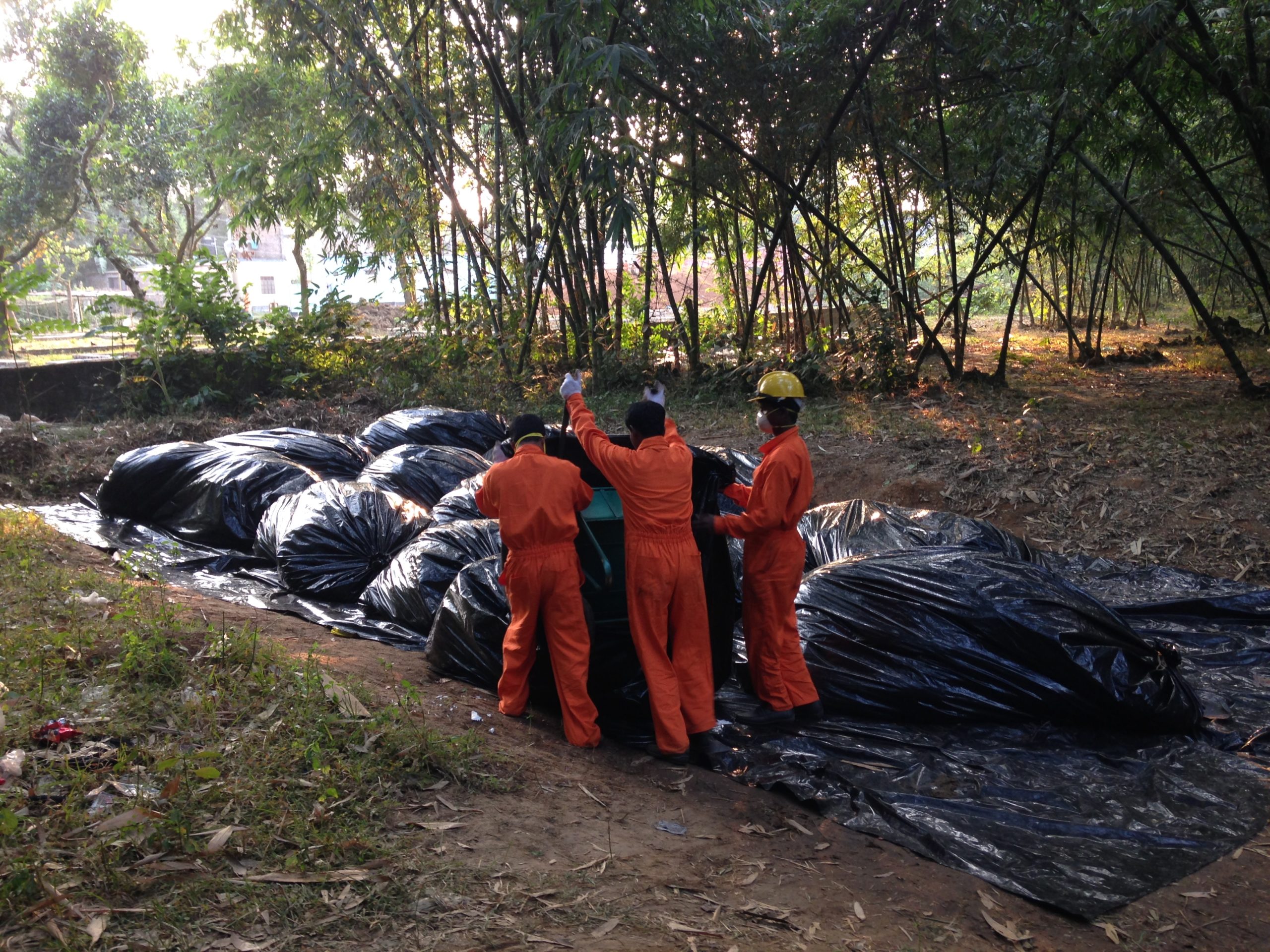
Bags of battery waste was removed from the bamboo forest, where children often played.
Pure Earth’s cleanup in Kathora is believed to be the first of its kind in Bangladesh, conducted with the Bangladesh Department of Environment, the University of Dhaka and the International Center for Diarrhoeal Disease Research, Bangladesh.
Wearing masks and bright orange protective suits, the Pure Earth team collected and disposed of piles of lead-acid battery waste abandoned in the bamboo forest, and then scraped and removed the contaminated topsoil. Clean soil was then spread over to cover the former lead-acid battery recycling sites. Around the village, roadways, walking paths and residential yards were paved over with concrete, brick and clean soil. Over 95 homes were also cleaned.
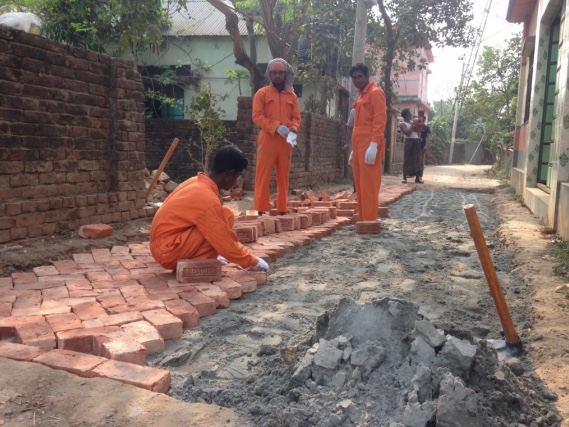
Roads and pathways were also cleaned and paved over in the village.
Mr. Hossain helped in the cleanup, and Sultana provided food for the crew, and a place for them to wash and change their contaminated clothes before going home.
The success of this simple, low-cost cleanup in Kathgora has effectively demonstrated how similar cleanups can be replicated across Bangladesh, spreading hope to many more mothers currently living with pollution.
Sultana is relieved that her community has been cleaned up and the family vegetable garden is now flourishing at the previously polluted site. Now that she understands the dangers of lead, Sultana and her husband have pledged to raise the alarm if another informal, polluting battery recycling operation tries to set up shop in neighboring villages. And they will not be alone.
Related:
Children’s Lead Levels Fall 35% Following Cleanup in Kathgora, Bangladesh
This project was in part supported by UNIDO, the European Commission, and USAID.
